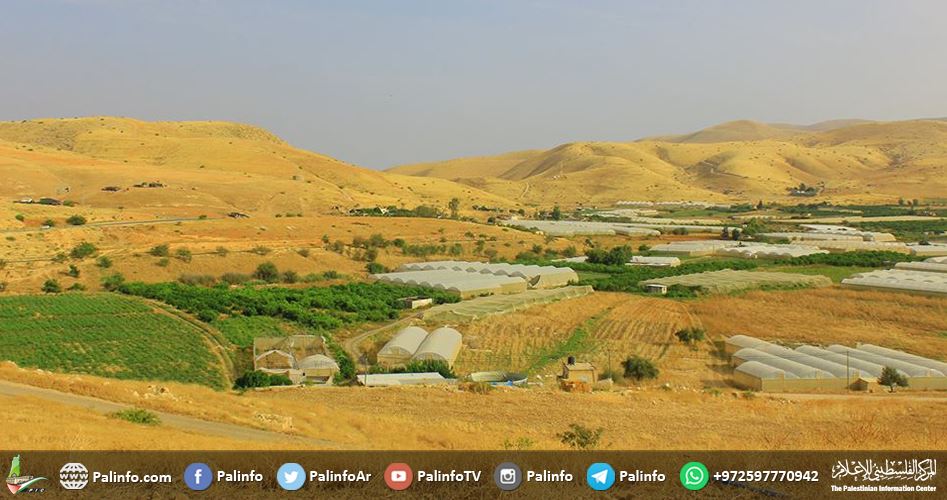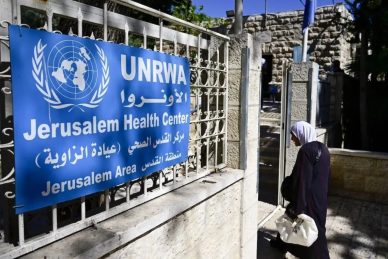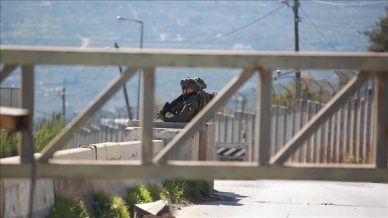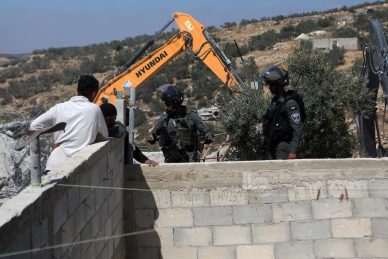Furush Beit Dajan is a Palestinian village in the northern West Bank located 10 kilometers east of Nablus and is a part of the Nablus Governorate.
Most of Furush Beit Dajan’s residents have abandoned their nomadic lifestyle and have adapted to farming.
However many still herd sheep and goats to the north of the village where there is a natural grazing area.
Lying just east of the city of Nablus in the middle of the Jordan Valley the Palestinian village covers 14000 dunums (around 3500 acres) of land most of which has been confiscated by the Israeli occupation authorities.
The village is also encircled by the Hamra military checkpoint and the Israeli settlements of Hamra and Mekhora.
Furush Beit Dajan receives most of its water from springs in the southern part of the village.
But due to the Israeli military’s digging of artesian aquifers over their land the water in the village’s underground wells started to deplete.
Speaking to the PIC reporter coordinator of the Defense Committee for Furush Beit Dajan Tawfiq Al-Hajj Muhammad said that the Israeli occupation authorities are harassing villagers who try to dig wells or use the water pipes.
Several farmers have been arrested and handed heavy fines when found guilty of trying to access water.
On top of it all water tanks are banned in the village. Recently Israeli occupation authorities demolished one of the local tanks containing 250 cubic meters of water.
A local pool containing 500 cubic meters of drinking water and an agricultural water tank containing 300 cubic meters were also destroyed in 2020.
In addition to water pool demolition Israel demolished dozens of local houses and banned Palestinian construction in the area as part of its displacement policy against the residents.
Head of the Furush Beit Dajan local council Azim Al-Hajj Muhammad affirmed that Israel is controlling 90% of the village’s water resources and refuses to recognize the village or connect it to power or water networks.
The water scarcity forced the local residents to switch from lemon planting to vegetable farming. They also had to change their farming practice and focus on working during winter using rainwater and halting it completely during the hot summer months due to lack of water.















